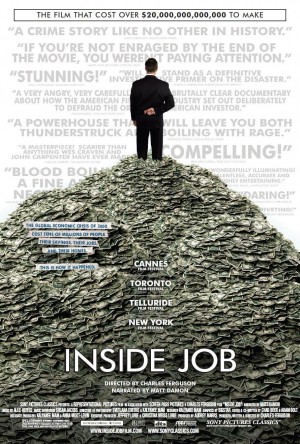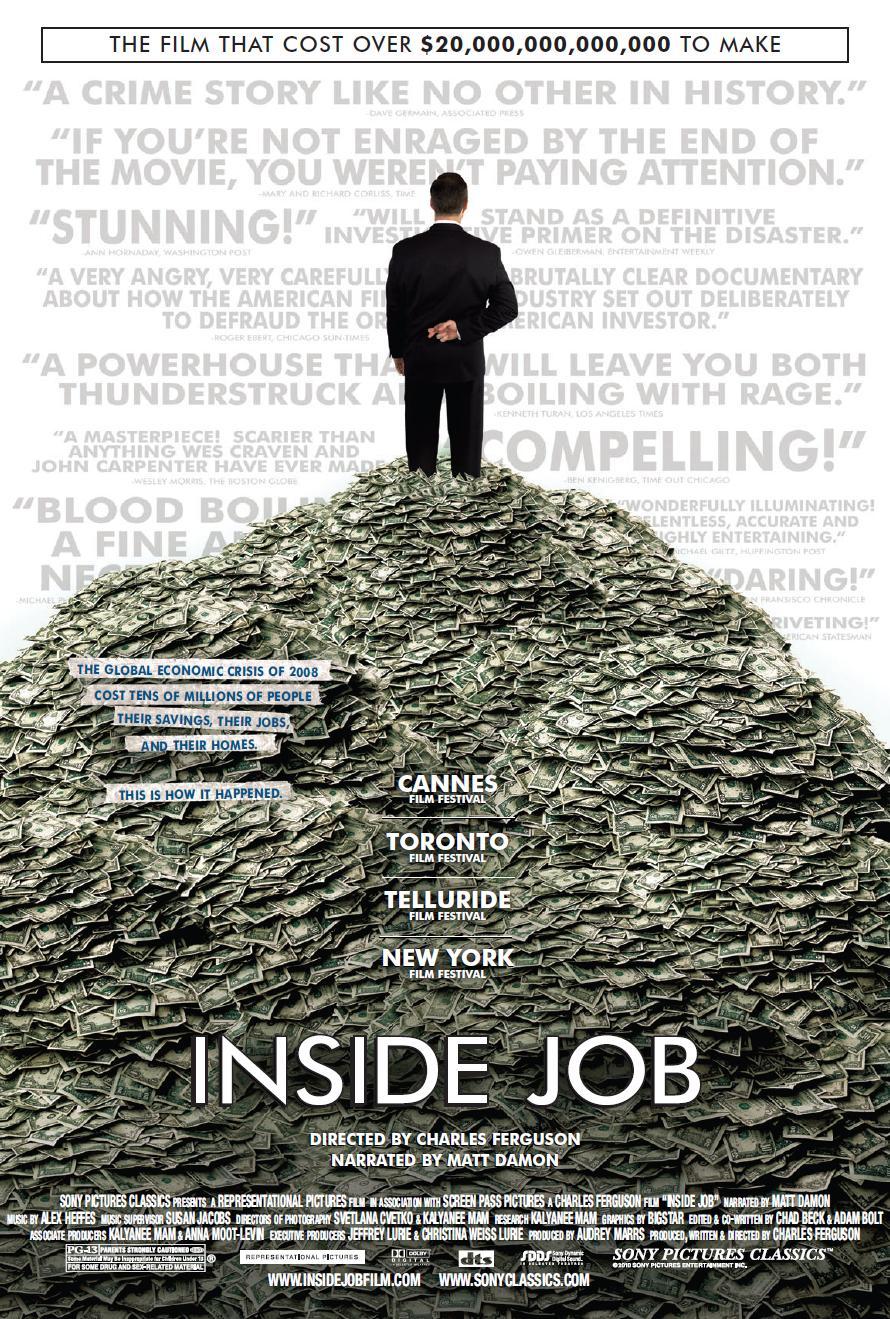
It was September, 2008. I was a freshman in chemistry class preparing my lab station for the afternoon. As my classmates and I clanged cylinders and collected test tubes, our TF stepped out. We were not supposed to be left alone, but no matter. Work went on as usual. About fifteen or so minutes passed before he returned, a stunned look on his face as a cell phone slipped off of his cheek.
“Guys,” he said, “the economy is collapsing.”
Four painfully-long hours later, I was bolting towards my dorm talking with my mom on the phone. I asked her what the hell is going on out there, and for once, she gave me no answer. I could only catch sobs on the other line.
Since that day, our family’s construction business has more or less failed, along with much of Florida’s economy. Yes, we’re one of those unlucky statistics you see flashed across the television screen. We too have had to move out of our home, have lost all our savings, and have contributed to the staggering unemployment rate.
It’s been two years, and the question still echoes: “how could this happen?”
I share these facts to let you know, I am far from unbiased when it comes to the subject matter. My situation has drastically changed thanks to people I had never heard of prior to this debacle. This film will obviously mean a lot more to those affected by the economic meltdown of 2008. But at this point, that should be just about everybody by now. Perhaps this documentary couldn’t have been more timely.
Inside Job starts off in beautiful Iceland. It looks like a travel ad, complete with sweeping aerial shots and steamy natural springs. An economist breaks the National Geographic feel with the story of how deregulation of Iceland’s three major banks led to an economic disaster that plummeted the island nation in a deficit over eight times its national income. Cue the booming ‘80s soundtrack with panoramic flyovers of New York City and voice snippets to set the mood. The only thing missing from the sequence is a young Charlie Sheen on his way to work a la Wall Street. The movie directly compares Iceland and New York City as the same economic wasteland. That’s the charm of the movie: it’s a wonderfully shot film about a disaster. Like what James Cameron meant to do with Titanic.
The documentary goes to great lengths to name each and every player responsible for the economic meltdown. The big crash of AIG, Freddie Mac, Fannie Mae, Merrill Lynch, and Lehman Brothers are explained in layman’s terms by a very serious sounding Matt Damon. The beautiful part about the film is its simple language and the comprehensive explanations of complex jargon like “credit default swaps” and “subprime mortgages.” Both are fancy terms for legalized stealing and exploitation of the lower classes, but let me quiet my inner Marxist for now…
Director Charles Ferguson is almost like an academic version of Michael Moore, shelving the theatrics and handing the audience the straight facts complete with animated graphs. This is by no means An Inconvient Truth, as Ferguson ensures we are invested in what he has to share, and that his PowerPoint portions are much more professional. He manages to steers clear of depicting too much emotion, which is difficult to do considering how devastating the collapse was. It could have been easy just to make the entire film about the billions affected. However dry you think the narration or structure can be, this movie skillfully slices through thousands of articles, lies, and backroom memos to make your feelings for unbridled capitalism a little less than patriotic.
We never see Ferguson himself onscreen, and only occasionally do we hear him ask provocative questions. One segment had a former Bush adviser stuttering into a stunned silence and the Dean of Columbia Business School detonate into a screaming contest that skewed his hair, twitched the muscles across his face, and forced the interview to a premature end. The “tough” question that made him blow? Does receiving contributions from an interested party affect the academic integrity of a published paper? How does bribery sound, boys? The audience is left with a feeling that these men are clueless of ethical expectations and the film turns into watching Silence of the Lambs‘ Hannibal Lecter describes the joys of eating fellow human beings with a side of legumes and a fine glass of red wine. Bon Appetit!
Ferguson does an expert job of showing the global repercussions of a deflated economy. We’re introduced to ten million factory workers in China have become unemployed, fellow European economies suffering their own recessions, and the collapses of boom towns like Singapore which are filled with unfinished skyscrapers and dessert-like construction zones. When these harrowing scenes are inter-cut with an assortment of downright unremorseful CEOs facing a tribunal of congressmen asking them, “how could something like this happen?” You can almost see the smirk on a few of their faces as they say they didn’t see it coming. Your blood pressure is at liberty to go up as well. The screen returns to the streets where exists many an empty subdivision, some with unkempt lawns and crackling facades, all with a red lettered sign out front, reading “Foreclosure.” The trees look familiar, the forsaken streets reminded me of a place I’ve seen before. My answer came a few segments later as the camera captured a modern-day Hooverville nicknamed “Tent City, Pinellas County.” I feel the tears escape from my eyes and a gasp rattled from my chest: the director had been shooting less than fifteen minutes from my own house.
When Ferguson addressed the plight of today’s college student, I squirmed in my seat once more. After all, many of us (myself included) have decided to take on mountainous debt in order to complete our education. And if the tuition trends detailed in the movie continue and the poor keep getting poorer, education will only be available to those who can afford it. Not to mention all of us already in debt who will start their adult lives with a mark against them. Wait, does SMG even have a business ethics course?
Your blood is supposed to boil. This isn’t a passive PBS documentary about algae; this documentary calls for action. The same anger Michael Moore tapped into for Capitalism: A Love Story and Alex Gibney first struck in Enron: The Smartest Guys in the Room are taken seriously and soberly in this film. Gone is the one man vs. the system feel of Moore’s film, and although both Ferguson and Gibney touch on the coke and hooker addiction that these super-consumers have developed, we are spared the recreations and instead are placed across the table from a Manhattan lady of the night who’s seen her fair share of high-profile clients. But outrage over billion dollar bonuses only gets you so far, Mr. Ferguson.
Most of the suggestions at the end of the movie are given vaguely. “Fight them!” the film says. But how are we supposed to make sure they lose their power? The documentary makes it seem like these pests are burrowed into our government like bedbugs. Ferguson makes it clear that there aren’t too many CEOs at the top with much of a soul left, so where do we find the honest guys to lead reform? My biggest complaint with this picture is the lack of closure at the end. I hate to leave such a controversial issue so quickly, as if we overstayed our allotted time in the theater and had to evacuate.
We sit through the hopeless carnage of greed and can’t even leave with an “I’m sorry.” Economic depression indeed.
My alternative title: everything you wanted to know about the economic collapse of 2008 but were afraid to ask. It does its job in informing and telling the straight facts with a lot more gumption than your math professor. Slick camera work, clever graphics, and expert commentary lent a professional air to the film. Someone did their homework right. Grade: A


Dear Monica, I saw Inside Job on Monday, November 8th. I have read your article and would like to comment. First, your mature insights are similar to mine @ 62 years of age. Second, you have given me hope for the future; for if we have as many youthful like minds as yours searching for a method to hold these criminals and the institutions they represent accountable with their persons and their properties, then I have a method for holding them accountable. Thirdly, Please work with me in developing a discussion centered around the National Convention solution. That solution was previewed at my website in 2006 and its operable mechanisms have been (not published) wholly refined since. Warm Regards, Mark A. Wetzel, National Vote Project
I think I need to watch this.
I dont agree with this 100% but it brings up some great points.